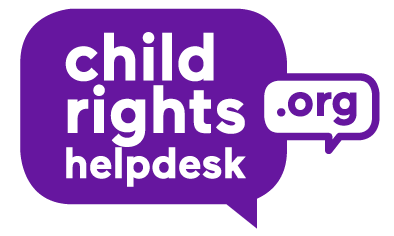We welcome last month’s landmark decision in which the UN Children’s Rights Committee (CRC) found that Finland had violated the rights of a child of LGBT parents by failing to consider his best interest as a primary consideration in their asylum procedure, and secondly, by failing to protect him from a real risk of irreparable harm upon his return to Russia. This is the first asylum-related case from the UN-system involving a child at risk of persecution based on the sexual orientation of the parent(s).
Facts
A.B. was born in the Russian Federation and he lived there until 2015 with his biological mother and her (female) partner. Although the family concealed the nature of their relationship out of fear of persecution and discrimination, given the hostility facing the LGBT community in Russia, A.B. was treated poorly because of his mothers’ relationship. In 2015, the family fled to Finland. Their application for international protection was rejected on the ground that there was no risk of being subject to persecution in the Russian Federation.
The complaint
In his complaint to the CRC, A.B. claims Finland violates his rights under UNCRC Arts. 3 (best interest of the child) and 22 (protection and assistance to refugee children). He alleges that the Finnish authorities neglected to perform a correct assessment of his best interest as a primary consideration in the examination of his family’s asylum applications. Moreover, he claims that any interpretation of the law by the Finnish authorities leading to the risk of repeated mistreatment and subjecting him to the risk of said violations cannot be in line with the best interest of the child.
Third-party intervention
A.B.’s complaint was supported with a third-party intervention submitted by CRIN, ICJ, ILGAEurop, ILGA World, and NELFA. The third-party intervenors pay special attention to the value of a ‘’holistic and child-centred’’ approach to a best interest assessment, considering the ‘’child’s individual and specific circumstances and needs’’ as well as the child’s right to be heard, and the duty for the decision-maker to motivate, justify, and explain how factual circumstances regarding the child have been weighed. They stress the well-documented, disproportionately negative influence of so-called “anti-propaganda” laws on children of LGBT families in the Russian Federation. Several international and regional human rights bodies have voiced their concerns on the legislation, as encouraging the stigmatisation of and discrimination against LGBT persons, including children from LGBT families.
View CRC
The CRC recalls that the Immigration Service failed to motivate, justify, and explain the decision concerning A.B. Moreover, the Finnish authorities have failed to properly consider the real risk of serious violation of the child’s rights such as violence and harassment upon his return to the Russian Federation, especially regarding the young age of the boy at the time of the decision and of the enduring impact resulting from the continuous bullying and stigmatisation based on his mother’s sexual orientation. We appreciate the Committee’s clarity on minimum requirements for an adequate best interest of the child assessment, and the reiteration that all authorities, including the courts, are bound by this obligation under the Convention. We welcome the confirmation of children as independent rights-bearers, including in the context of international protection. We hope that professionals and decision-makers continue to use the best interest of the child as a primary standard of protection, based on the Convention, but also within the framework of EU and national asylum law, including Art. 20(3,5) of the EU Qualifications Directive.
Information:
- Judgment B. v Finland: https://tbinternet.ohchr.org/Treaties/CRC/Shared%20Documents/FIN/CRC_C_86_D_51_2018_32344_E.pdf
- Commentary of other organisations:
- Qualifications Directive 2011/95/EU.
